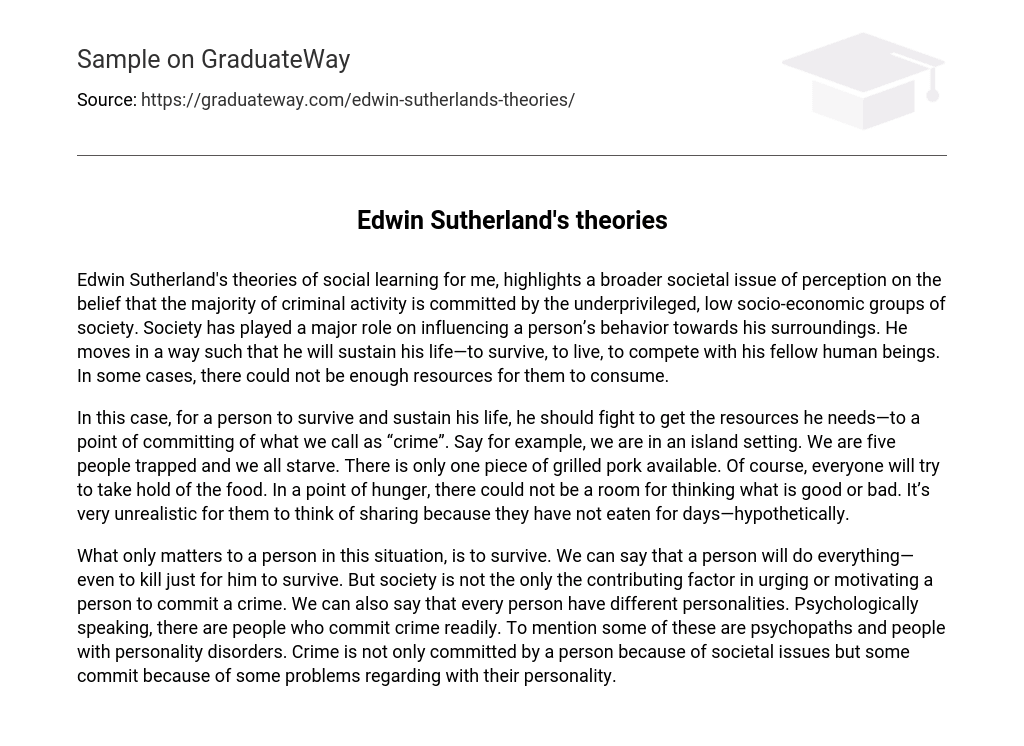Edwin Sutherland’s theories of social learning for me, highlights a broader societal issue of perception on the belief that the majority of criminal activity is committed by the underprivileged, low socio-economic groups of society. Society has played a major role on influencing a person’s behavior towards his surroundings. He moves in a way such that he will sustain his life—to survive, to live, to compete with his fellow human beings. In some cases, there could not be enough resources for them to consume.
In this case, for a person to survive and sustain his life, he should fight to get the resources he needs—to a point of committing of what we call as “crime”. Say for example, we are in an island setting. We are five people trapped and we all starve. There is only one piece of grilled pork available. Of course, everyone will try to take hold of the food. In a point of hunger, there could not be a room for thinking what is good or bad. It’s very unrealistic for them to think of sharing because they have not eaten for days—hypothetically.
What only matters to a person in this situation, is to survive. We can say that a person will do everything—even to kill just for him to survive. But society is not the only the contributing factor in urging or motivating a person to commit a crime. We can also say that every person have different personalities. Psychologically speaking, there are people who commit crime readily. To mention some of these are psychopaths and people with personality disorders. Crime is not only committed by a person because of societal issues but some commit because of some problems regarding with their personality.





